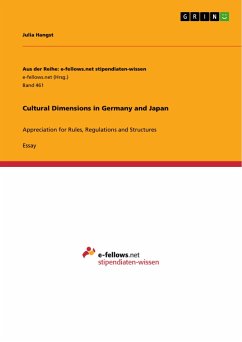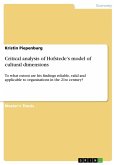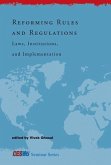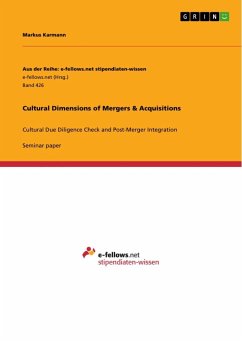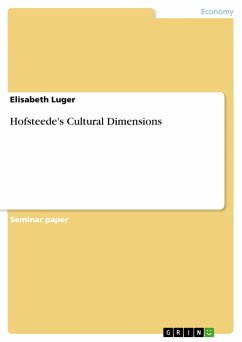Essay from the year 2011 in the subject Business economics - Business Management, Corporate Governance, grade: 1,0, Furtwangen University, language: English, abstract: In today's business society the "increasing importance of global business" (Adler 2008, p. 5) can no longer be ignored. Executives need to be "skilled at working with people from countries other than their own" (Adler 2008, p. 13) because "only those who really understand their foreign colleagues and themselves can achieve success in international business" (Schroll-Machl 2003, p. 9). Geert Hofstede, a Dutch organizational sociologist, conducted a worldwide study on the influence of national cultures on organizational cultures. One of the dimensions he found during his study was uncertainty avoidance. This dimension "deals with a society's tolerance for uncertainty and ambiguity. [...] It indicates to what extent a culture programs its members to feel either uncomfortable or comfortable in unstructured situations. Unstructured situations are novel, unknown, surprising, different from usual. Uncertainty avoiding cultures try to minimize the possibility of such situations by strict laws and rules, safety and security measures." Moreover they are often guided by the "belief in absolute Truth: there can only be one Truth and we have it. [...] Uncertainty accepting cultures are more tolerant of opinions different from what they are used to; they try to have as few rules as possible" (Hofstede 1994, p. 4).This paper deals with the influence of this uncertainty avoidance dimension and the accompanying appreciation of rules and regulations on doing business in Germany and Japan.
Hinweis: Dieser Artikel kann nur an eine deutsche Lieferadresse ausgeliefert werden.
Hinweis: Dieser Artikel kann nur an eine deutsche Lieferadresse ausgeliefert werden.

